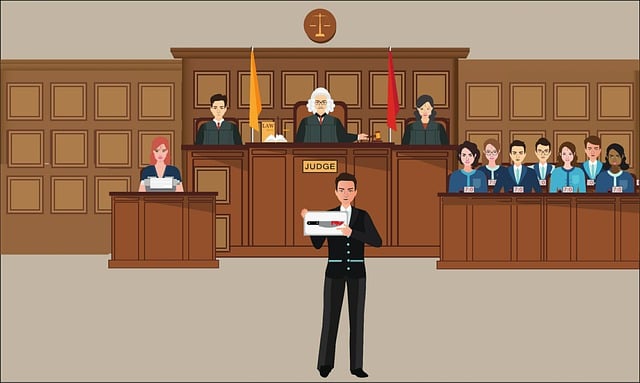Teen Driver Rehabilitation programs provide a pathway for young DUI offenders to regain control over their insurance destinies. These programs offer discounted rates by teaching defensive driving and substance abuse counseling, reducing costs after successful completion. By actively participating, teens can improve their driving records, demonstrating responsibility and maturity, leading to more affordable insurance options in the future.
After a DUI arrest, teen drivers face not only legal consequences but also significant insurance adjustments. This article delves into the complex landscape of post-DUI insurance claims, offering insights for teens and their families. We explore how DUIs impact insurance rates, provide guidance on navigating claims processes, discuss the role of rehabilitation programs, and offer strategies for restoring credit and insurance eligibility. Understanding these steps is crucial for teens aiming to regain driving privileges and secure affordable coverage.
- Understanding Insurance Adjustments After a DUI for Teen Drivers
- The Impact of a DUI on Teen Driver's Insurance Rates
- Navigating the Claims Process Post-DUI Arrest
- Rehabilitation Programs and Their Influence on Insurance Claims
- Restoring Credit and Insurance Eligibility After a DUI Conviction
Understanding Insurance Adjustments After a DUI for Teen Drivers

For teen drivers involved in a DUI (Driving Under the Influence), navigating insurance adjustments can be a complex and stressful process. It’s crucial to understand that their insurance options and coverage may significantly differ from adult policies, often with stricter terms and conditions. After a DUI conviction, teens typically face higher insurance premiums due to increased risk profiles. This is where Teen Driver Rehabilitation programs come into play as many insurance companies offer discounted rates for young drivers who complete these programs, demonstrating improved driving skills and responsibility.
These rehabilitation programs often include mandatory education courses that teach the dangers of drunk driving, along with defensive driving techniques. Successful completion can lead to reduced insurance costs, providing some financial relief for struggling teens. Additionally, parents or legal guardians might need to be involved in managing their teen’s policy, ensuring they adhere to any required rehabilitation steps and making informed decisions regarding coverage options tailored to their specific circumstances.
The Impact of a DUI on Teen Driver's Insurance Rates

A DUI conviction can significantly impact a teen driver’s insurance rates, often leading to substantial increases. This is because insurance companies view a DUI as a high-risk event, indicating potential reckless driving behavior. As a result, teens may find themselves facing higher premiums, especially if they are new drivers or have limited driving history.
The process of Teen Driver Rehabilitation plays a crucial role in mitigating these effects. By participating in rehabilitation programs, which often include defensive driving courses and substance abuse counseling, teen drivers can demonstrate their commitment to safe driving practices. This may help improve their insurance outlook over time, potentially leading to more affordable rates as their driving record reflects responsibility and maturity.
Navigating the Claims Process Post-DUI Arrest

After a DUI arrest, many young drivers and their families face a complex process when filing insurance claims. Navigating this process requires careful consideration and a deep understanding of one’s rights. The initial step involves contacting your insurance provider to inform them about the incident, providing all necessary details for a thorough assessment. During this time, it’s crucial to document any expenses related to the arrest and subsequent legal proceedings, as these may be covered under specific policies or additional riders.
Teen Driver Rehabilitation programs can play a significant role in supporting young drivers post-DUI. These programs offer educational resources and counseling services that teach responsible driving habits and help individuals understand the potential long-term effects of such incidents on their insurance premiums. By actively engaging in these programs, teens can work towards restoring their driving privileges and improving their insurance adjustability prospects.
Rehabilitation Programs and Their Influence on Insurance Claims

For teen drivers involved in a DUI (Driving Under the Influence) incident, participation in comprehensive rehabilitation programs can significantly impact their insurance claims and future coverage options. These programs are designed to help young individuals understand the consequences of their actions and learn responsible driving habits. By enrolling in Teen Driver Rehabilitation, they can expect to undergo various therapeutic sessions, educational workshops, and behind-the-wheel training, all aimed at promoting safe driving behaviors.
The influence of such rehabilitation on insurance claims is twofold. Firstly, it demonstrates a commitment to personal growth and accountability, which can lead to more favorable terms and rates during the claims process. Insurers often view active participation in rehabilitative programs as a positive sign, showing that the driver is proactive about rectifying their mistakes. This can result in reduced premiums and improved insurance coverage options post-DUI.
Restoring Credit and Insurance Eligibility After a DUI Conviction

After a DUI conviction, restoring credit and gaining insurance eligibility can seem like daunting tasks for teen drivers and their families. The immediate consequences of a DUI include license suspension and increased insurance premiums, which can significantly impact a young driver’s financial stability and independence. However, there are strategies to navigate this challenging period. One crucial step is actively participating in Teen Driver Rehabilitation programs that offer educational resources and support to understand the impact of drunk driving and promote responsible behavior.
These programs often involve community service, counseling, and additional driving courses to demonstrate maturity and a commitment to safety. As part of their rehabilitation, teens can work towards rebuilding their credit score by consistently making payments on time and keeping debts low. Additionally, they may need to shop around for insurance providers willing to offer coverage at a reasonable rate, considering their DUI history. Demonstrating responsible behavior and adhering to the terms of their rehabilitation plan can lead to easier access to affordable insurance options in the future.
For teen drivers involved in a DUI incident, the subsequent insurance adjustments can be significant. Navigating the claims process, understanding rate impacts, and exploring rehabilitation programs are crucial steps towards restoring eligibility and creditworthiness. By participating in approved rehabilitation programs, teens can mitigate insurance consequences and gain access to more affordable coverage options. This holistic approach, addressing both legal and financial aspects, is essential for a fresh start and encourages responsible driving behaviors moving forward.






